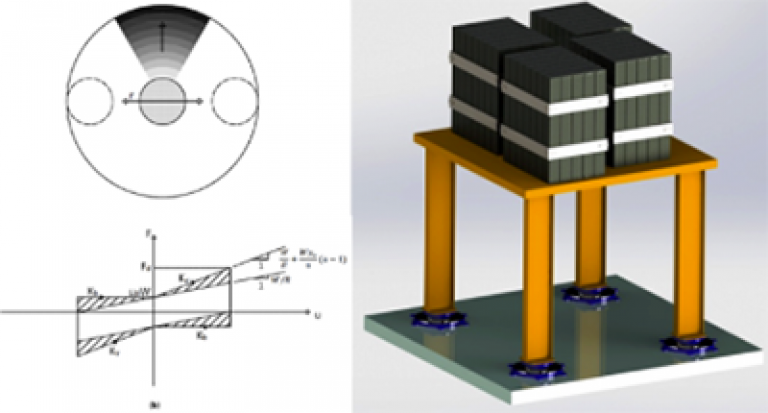Dr Galasso awarded two international research grants
18 January 2018
Dr Carmine Galasso has recently been awarded two collaborative, international research grants.

The first one is on 'Dynamic testing of variable friction seismic isolation devices and isolated systems', within the EU-funded 'Seismology and Earthquake Engineering Research Infrastructure Alliance for Europe' (SERA), responding to the priorities identified in the Horizon 2020 call 'INFRAIA-01-2016-2017 Research Infrastructure for Earthquake Hazard'.
The main goal of SERA is to improve the access to data, services and research infrastructure, and to deliver solutions based on innovative R&D in seismology and earthquake engineering, aiming at reducing the exposure of our society to the risk posed by natural and anthropogenic earthquakes.
SERA offers transnational access to the largest collection of high-class experimental facilities in structural and geotechnical earthquake engineering and engineering seismology. 17 research proposals have been selected within the 1st call of SERA for Transnational Access, full list here: https://sera-ta.eucentre.it/index.php/ta-research-projects/
Details on Dr Galasso's project, in collaboration with Middle East Technical University (Turkey), University of Washington (USA), and Politecnico di Milano (Italy), and with industrial support from TİS Technological Isolation Systems (Turkey), can be found here: https://sera-ta.eucentre.it/index.php/sera-ta-project-03/
The second project is on 'UC Davis-Northeaster University-University College London partnership in Climate Change Adaptation for Civil Infrastructure' funded by the University of California Davis (UC Davis) Global Affairs, within the 'Seed Grants for International Activities' scheme.
The Seed Grant will support two major activities. One is a pilot research study to build the first integrated climatological-seismic hazard and risk model for coastal California (applicable to other regions with similar exposure). The outcomes of this study will lead to a series of major joint research proposals, with focus on
'New frontiers in simulating accumulated damage and failure in steel structures from multiple interacting
hazards: wind-fatigue and seismic-fracture'. The second proposed activity is a mini-symposium at Northeaster University, in Boston, MA (November 2017), bringing together experts from UC Davis, Northeastern University, UCL, as well as government and professional practice, with the focus of bringing ideas of climate adaptation into engineering curricula, while also making inroads into the communities that will ultimately design and construct resilient infrastructure.
 Close
Close

